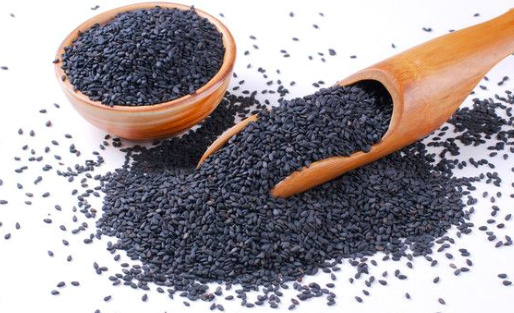Відкриття багатої харчової цінності ароматних насінин кунжуту
М’яке потріскування сезам насінин, що потрапляють на гарячу сковороду, випускаючи свій горіховий аромат у повітря, сигналізує початок кулінарної подорожі, яка є водночас смачною та надзвичайно харчовою. Смажений кунжут є основою кухонь по всьому світу вже тисячі років — від оживлених вулиць азійських ринків до витончених кухонь середземноморських домогосподарств. Ця скромна насінина має вражаючу харчову цінність і додає глибини та багатства безлічі страв.
Окрім вражаючого смакового профілю, смажене кунжутне насіння має низку корисних для здоров'я властивостей, що робить його цінним додатком до будь-якої дієти. Коли ми зануримося в захопливий світ цих дрібних насінин, ви зрозумієте, чому фахівці з харчування та кулінари радять регулярно вживати кунжут.
Основні харчові компоненти смаженого кунжуту
Білки та профіль амінокислот
Смажене кунжутне насіння є джерелом рослинного білка, який містить усі незамінні амінокислоти, необхідні для оптимального здоров'я. Всього лише одна унція (приблизно 28 грамів) цього насіння містить близько 5 грамів білка, що робить його чудовим вибором для вегетаріанців і веганів, які шукають повноцінні джерела білка. Завдяки процесу смажіння білок стає ще більш біодоступним, оскільки нагрівання руйнує певні сполуки, які інакше можуть перешкоджати засвоєнню поживних речовин.
Амінокислотний профіль смаженого кунжуту особливо відзначається високим вмістом метіоніну та триптофану, які відіграють ключову роль у метаболізмі та регуляції настрою відповідно. Це поєднання робить насіння кунжуту ідеальним додатком до рослинних дієт, де цих амінокислот може бракувати.
Вміст мінералів та їхня біодоступність
Що стосується вмісту мінералів, смажений кунжут справді вирізняється. Ці насіння надзвичайно багаті кальцієм, і дослідження показують, що кунжут містить більше кальцію на грам, ніж молоко, коли його споживають повністю. Процес смажіння підвищує біодоступність цих мінералів, полегшуючи їхнє засвоєння та використання організмом.
Залізо, цинк та магній також присутні в значних кількостях, сприяючи здоров'ю крові, імунній функції та відновленню м'язів. Поєднання цих мінералів у смаженому кунжуті створює синергетичний ефект, максимізуючи їхню корисну дію на загальне здоров'я.
Кардіоваскулярні переваги та контроль рівня холестерину
Жири, корисні для серця, та антиоксиданти
Смажене кунжутне насіння багате на корисні для серця ненасичені жири, зокрема жирні кислоти омега-6 та лігнани. Ці сполуки сприяють здоров'ю серцево-судинної системи, допомагаючи підтримувати нормальний рівень холестерину та зменшувати запалення в організмі. Процес смажіння фактично допомагає зберегти ці корисні сполуки, одночасно покращуючи їхній смак.
Насіння містить значну кількість сезамоліну та сезаміну — унікальні антиоксиданти, які, як було доведено, мають захисний ефект для здоров'я серця. Ці сполуки допомагають запобігти окисленню ЛПНЩ-холестерину — ключовому фактору підтримки здоров'я артерій та профілактики серцево-судинних захворювань.
Регулювання артеріального тиску
Регулярне вживання смаженого кунжуту пов'язане з покращенням контролю артеріального тиску. Вміст магнію та кальцію, а також специфічних пептидів, що містяться в білках кунжуту, сприяє кращій регуляції артеріального тиску. Дослідження показують, що включення смаженого кунжуту до щоденного раціону може допомогти підтримувати здоровий рівень артеріального тиску в рамках збалансованого харчування.
Наявність аргініну — амінокислоти, яка сприяє утворенню оксиду азоту, — додатково підтримує серцево-судинне здоров'я, сприяючи розширенню кровоносних судин і покращенню кровообігу.

Здоров'я травлення та метаболічні переваги
Вміст клітковини та здоров'я кишечнику
Смажене кунжутне насіння є чудовим джерелом розчинних та нерозчинних волокон, сприяючи оптимальному здоров'ю травлення. Вміст клітковини допомагає підтримувати регулярний стілець, живить корисні кишкові бактерії та сприяє профілактиці порушень травної системи. При регулярному вживанні ці насіння можуть сприяти здоровому кишковому мікробіому, який все більше визнається важливим для загального здоров'я.
Процес смажіння робить клітковину більш приємною на смак, зберігаючи при цьому її корисний вплив на травлення. Ця помірна теплова обробка також може допомогти знизити певні антинутрітивні фактори, полегшуючи перетравлення насіння та покращуючи доступність їхніх поживних речовин.
Контроль рівня цукру в крові
Поєднання білка, корисних жирів та клітковини в смаженому кунжуті робить його чудовим продуктом для контролю рівня цукру в крові. Ці компоненти працюють разом, сповільнюючи всмоктування глюкози в кров, що допомагає запобігти раптовим стрибкам рівня цукру в крові. Це робить смажений кунжут особливо корисним для людей, які прагнуть підтримувати стабільний рівень цукру в крові.
Дослідження показують, що лігнани, що містяться в насінні кунжуту, можуть також сприяти покращенню чутливості до інсуліну, що робить його цінним додатком до раціону для тих, хто страждає на діабет або пре-діабетичні стани.
Включення смаженого кунжуту до повсякденного харчування
Кулінарне застосування та рекомендації з подавання
Додавання смаженого кунжуту до страв може бути простим і водночас творчим. Посипайте ним салати, смажені овочі або запечінки, щоб додати горіховий хрускіт. Додавайте кунжут до домашнього гранолу чи сніданкових круп для поживного початку дня. Насіння також можна змолоти в пасту (тахіні) для використання в соусах, заправках або як намазку.
Для максимальної насиченості смаку та поживності розгляньте можливість підсмажування цілого кунжуту безпосередньо перед вживанням. Це вивільняє природні олії та посилює ароматичні властивості, роблячи насіння ще смачнішим і краще засвоюваним організмом.
Поради щодо зберігання та консервації
Щоб зберегти свіжість і харчову цінність смаженого кунжуту, важливо дотримуватися правильних умов зберігання. Зберігайте його в щільно закритій тарі в прохолодному, темному місці до кількох місяців. Для тривалого зберігання тримайте його в холодильнику, де він може зберігатися до року. Завжди перевіряйте на ознаки прогірклості перед вживанням, оскільки високий вміст олії може призвести до окислення, якщо кунжут неправильно зберігати.
Придбаючи смажений кунжут, обирайте насіння, яке було належним чином перероблене та упаковане, щоб забезпечити максимальну свіжість і харчову цінність. Якість насіння суттєво впливає як на смак, так і на користь для здоров’я.
Поширені запитання
Скільки смаженого кунжуту потрібно споживати щодня для користі для здоров’я?
Зазвичай рекомендована порція становить 1–2 столові ложки (приблизно 10–20 грамів) на день. Ця кількість забезпечує значну харчову цінність і легко включається до різноманітних страв без надмірного споживання калорій.
Чи можуть бути побічні ефекти від вживання смаженого кунжуту?
Хоча смажене кунжутне насіння, як правило, безпечне для більшості людей, деякі можуть мати алергію на кунжут. Крім того, через високий вміст клітковини та жирів рекомендується починати з невеликих кількостей, щоб дати час шлунково-кишковому тракту адаптуватися.
Чи зменшує смаження кунжутного насіння його харчову цінність?
Легке смаження фактично підвищує біодоступність багатьох поживних речовин у кунжутному насінні, одночасно покращуючи смак. Однак надмірне нагрівання може пошкодити деякі чутливі до тепла поживні речовини, тому помірна температура смаження є оптимальною для збереження харчової цінності.
Чи може смажений кунжут допомогти у контролі ваги?
Так, смажений кунжут може сприяти досягненню цілей у контролі ваги завдяки вмісту білка, клітковини та корисних жирів, які сприяють відчуттю насичення та регулюють апетит. Проте його слід вживати помірно, як частину збалансованої дієти, через високу калорійність.

 EN
EN
 DA
DA
 AR
AR
 NL
NL
 FI
FI
 FR
FR
 DE
DE
 EL
EL
 HI
HI
 IT
IT
 JA
JA
 KO
KO
 NO
NO
 PL
PL
 PT
PT
 RU
RU
 ES
ES
 SV
SV
 TL
TL
 ID
ID
 SR
SR
 UK
UK
 VI
VI
 HU
HU
 TH
TH
 TR
TR
 FA
FA
 AF
AF
 MS
MS
 GA
GA
 MK
MK
 HY
HY
 KA
KA
 BN
BN
 LA
LA
 MN
MN
 NE
NE
 MY
MY
 KK
KK
 UZ
UZ
